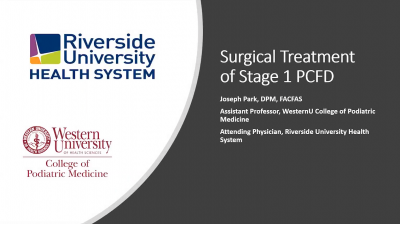
Practice Perfect 860
Asking the Detailed Questions -
Often the Difference Between Making the Diagnosis and Missing it
Asking the Detailed Questions -
Often the Difference Between Making the Diagnosis and Missing it

Perhaps the most common mistake students and residents make while learning their craft of podiatric medicine is failing to ask detailed questions, leaving unchallenged the superficial information supplied and not digging for more. In cases like this, our trainees are allowing the conversation to be driven entirely by the patient. The problem with this, of course, is that patients don’t know all of the information that they should provide during an encounter. It is the physician who is in charge of the conversation – not to the point of dominating the discussion, mind you, but steering it in the direction of gathering the most important information.
Here's an example of a common presentation by a student:
“I’m seeing Mrs Jones, a new patient, who is presenting with heel pain.”
As an experienced clinician, you know that there are several problems with this presentation. No patient age was provided. You don’t know which foot - right, left, or both - has the problem. And, perhaps most importantly, the location of the heel pain is not provided. Is it plantar medial, plantar lateral, rim, posterior, etc? The differential diagnosis depends entirely on the location of the pain with further details to flesh out the complaint.
Similarly, when I let students go for a minute to present their patients, there is often a lack of detail. Some common missed information includes the following, by no means comprehensive, list:
- “Patient has been wearing an orthotic” – what kind? How does it fit? Is it helping? Who made it?
- “Worse pain in shoes” – What shoes is the patient wearing today? Do they wear other shoes? What does “worse” mean?
- “Neuro exam has a positive Tinel’s” – Which nerve? What is the distribution of radiation?
- Trainee describes a motor vehicle trauma – How fast were they driving? What kind of car? How did the accident occur? Was the patient a driver or passenger? If passenger, what seat were they in?
This list can go on forever, but I think you get the point. The key mistake is a failure to explore details that may have an effect on understanding the patient’s complaint. This failure may be due to a lack of knowledge about the nature of the complaint (a common issue with new learners such as students). With residents the problem typically stems from being in a hurry coupled with some lack of knowledge (not having quite enough experience to know which corners it’s ok to cut).
The key mistake that Residents make is a failure to explore details that may have an effect on understanding the patient’s complaint. Perhaps 60% of the time, I make a diagnosis from a detail that I asked about rather than one that was automatically supplied by the patient.
Failure to explore the details is usually the difference in quality between the outcome results of a resident’s work and that of an experienced attending. Perhaps 60% of the time, I make a diagnosis from a detail that I asked about rather than one that was automatically supplied by the patient. We all hear that 95% of diagnoses are made from the history, and this is so true as to be axiomatic. Asking extra questions to better understand the details also often reminds patients of a particular detail that they may not have described.
When interviewing a patient, and they describe a particular characteristic, ask yourself one question: “What other details about what they just said should I explore further to better know the patient and the situation?” It does take a bit longer to gather the more detailed history, but it will serve you well with a fuller understanding of the complaint and better clinical outcomes. Be a detective and look for the hidden details!
Best wishes.

Jarrod Shapiro, DPM
PRESENT Practice Perfect Editor
[email protected]

































Comments
There are 0 comments for this article